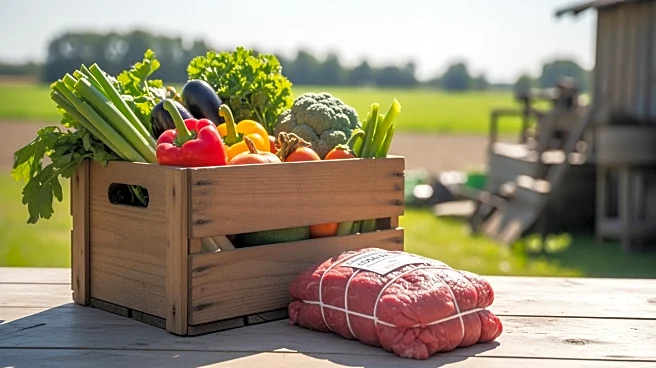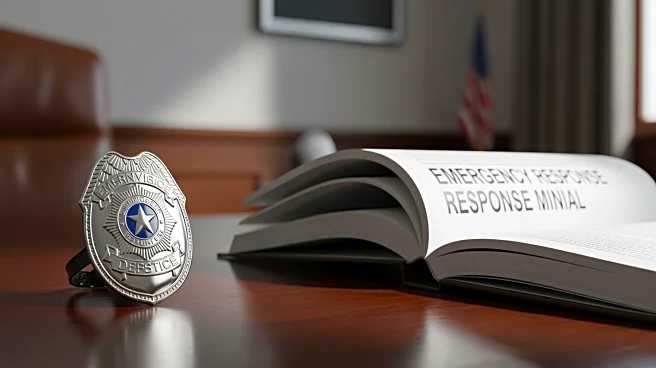What's Happening?
A death doula, also known as an end-of-life doula, provides support to adults in hospice during their final weeks, days, or hours. The role involves being present during one of the most vulnerable times for patients and their families. The doula's experience
with her father's passing inspired her to pursue this path, aiming to offer the knowledge and support she wished she had during her father's final moments. Her work involves helping families understand the dying process, including common occurrences like the 'death rattle,' and providing emotional support. The doula also uses her therapy dog to comfort patients and their families, enhancing the care experience.
Why It's Important?
The role of a death doula is crucial in demystifying the dying process and providing emotional and practical support to families during a challenging time. This profession highlights the importance of compassionate care and the need for better understanding of end-of-life issues. By sharing her experiences, the doula helps families prepare for the inevitable, reducing anxiety and fear associated with death. Her insights can lead to more informed decisions about end-of-life care, encouraging discussions on personal wishes and preparations. The presence of therapy animals in hospice care also underscores the therapeutic benefits of animal-assisted interventions.
What's Next?
The growing awareness of death doulas may lead to increased demand for their services, prompting more individuals to consider this career path. As society becomes more open to discussing death, there may be a shift towards more personalized and compassionate end-of-life care options. The integration of therapy animals in hospice settings could become more common, enhancing the emotional support provided to patients and families. Additionally, the doula's experiences may inspire others to document their end-of-life wishes, ensuring their preferences are respected and reducing the burden on loved ones.
Beyond the Headlines
The work of a death doula raises ethical considerations about how society approaches death and dying. It challenges cultural taboos surrounding death, encouraging more open conversations about mortality. The profession also highlights the need for comprehensive training and support for those working in end-of-life care, ensuring they are equipped to handle the emotional and practical aspects of the role. The doula's personal reflections on her father's passing illustrate the profound impact of personal experiences on professional choices, offering a unique perspective on the intersection of personal and professional life.















